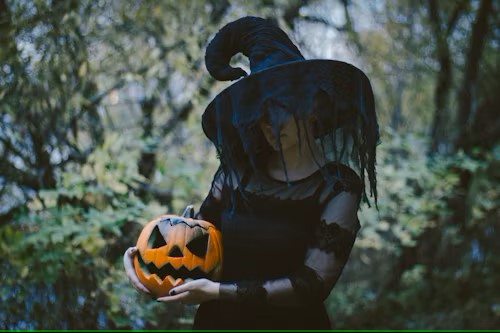
How Independent Women Became the World’s Favorite Scapegoats
From Witch Hunts to Modern Day: How Society Still Fears Strong Women
Living Dangerously: When Being a Woman Was a Crime
Imagine living in a world where showing a little too much curiosity, independence, or even kindness could land you a death sentence. Fun times, right?
The Origins of "Witchcraft": When Strong Women Made People Nervous
For centuries, being an outspoken or skilled woman was enough to raise eyebrows—and suspicions. In 16th and 17th century Europe, women who didn't fit the obedient role were often branded as witches. This wasn't because they cast spells, but because they represented independence in a society that thrived on conformity.
The Malleus Maleficarum, a witch-hunting manual published in 1487, made this fear official. Written by two monks, this charming piece described how to detect, try, and punish "witches," targeting women, especially for their "fragile" nature, which supposedly made them susceptible to the devil.
Trials and Executions: The Original Cancel Culture
Once branded a witch, a woman's fate was almost sealed. During the notorious Salem Witch Trials of 1692, for example, a few young girls' accusations ignited a wildfire of fear. Soon, dozens were arrested and questioned, their "crime" often being that they were different—too outspoken, too independent, or simply inconvenient.
One infamous case was Bridget Bishop, the first executed during the trials. Her "sin"? Owning a tavern, wearing colourful clothes, and not conforming to the strict Puritan image. She was hanged, along with 19 others, all because society preferred silence and submission over individuality and independence.
Witch Hunts in India: Same Story, Different Setting
But witch hunts weren't just a European phenomenon. In India, witch-hunting has claimed the lives of countless women, especially in rural areas. Accusations here were often triggered by superstition, economic disputes, or simply because a woman was different. In Jharkhand, where the practice is most prevalent, women are still branded as "dayans" (witches) and subjected to brutal punishment, even death.
Many of these "witches" are widows or single women with property—seen as easy targets by those looking to seize their assets. Sometimes, it's an outspoken woman who dares to challenge norms. What better way to silence someone than to call her a witch?
Social Punishment and "Moral" Policing: Witch Hunts 2.0
The fun part? Witch hunts are far from dead.
Today's accusations look a little different. In modern times, ambitious women are often labelled as "too aggressive," strong-willed women as "difficult," and single women past a "certain age" as suspiciously independent. Our society has swapped torches and pitchforks for gossip and social media, but the objective remains the same: silencing those who don't fit the mould.
The double standards are obvious everywhere. Think of how women politicians are held to different standards than men, questioned more on their appearance than their policies, or criticised for showing ambition. We may not be tying anyone to a stake anymore, but we're still judging, shaming, and trying to control.
Witchcraft and Medicine: Demonizing Knowledge
Many women accused of witchcraft were actually healers or midwives, women with a knack for natural remedies. Back in the day, that was reason enough to raise suspicions. A woman who understood herbs? Scandalous! Imagine if she used that knowledge to make her community stronger—that was downright dangerous to the male-dominated establishment.
This demonisation of female knowledge persists today. Take STEM fields, where women have had to battle for recognition and respect. For centuries, the mere act of being a knowledgeable woman has drawn suspicion, ridicule, and, yes, accusations of "witchcraft"—whether literal or figurative.
Fear of the "Uncontrollable": A Common Thread Through History
What these historical and modern-day witch hunts all boil down to is fear. Society has always been a little nervous about what it can't control, and independent women have historically been among those forces deemed "uncontrollable." Women who earn their own money, have their own opinions and refuse to fit into the narrow roles given to them threaten a carefully constructed social order.
The ongoing witch hunts, whether they're about outspoken women in rural Jharkhand or women in the boardroom, serve the same purpose: they reinforce societal norms that dictate what's "acceptable" for women to say, do, or aspire to. The accusations just keep evolving, adapting to modern times, but the intent to control remains the same.
Resilience: The Real Magic That Can't Be Burned
The irony is that witch hunts, both past and present, failed to extinguish the very thing they sought to destroy: women's resilience. History is full of women who refused to be silenced, from those branded witches to those standing up to sexism in boardrooms. This resilience, the ability to stand tall in the face of judgment, is the true magic that has kept women moving forward.
Witch hunts may look a little different now, but the undercurrent remains. The next time someone tries to dim your shine, remember the countless women who endured labels, accusations, and judgment. They were strong, resilient, and unstoppable—and so are you. Because at the end of the day, the one thing that frightens society more than any spell or curse is a woman who knows her own strength.
If you or somebody you know is struggling with something difficult and needs to get in touch with a therapist, consider reaching our Support and Engage verticals for affordable and inclusive help!
Like our content? Please show us some support by sharing and up-voting!
Image Credits: Unsplash
